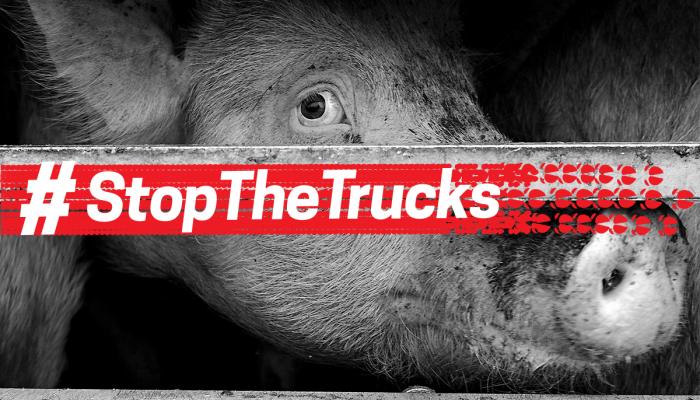
"The European Commission must act now by revising current regulations"
It's official, Belgium has publicly addressed to the President of the European Commission a request for revision of the European Regulation on the protection of animals during transport (1/2005). Presented in support of an initial request made by the German, Danish and Dutch governments (with Austria and Sweden also following the initiative), the request targets specifically a maximum limit for the transport of live animals, as well as more strict and precise requirements for quality of transport and the level of training of drivers and managers. GAIA is launching a petition to ask the European Commission to act quickly by initiating a revision of the Regulation.
GAIA welcomes this significant step forward for animal welfare, the result of its "Stop the Trucks" campaign, conducted jointly with Eurogroup for Animals. According to Ann De Greef, Director of GAIA, "It is now up to the European Commissioner for Health and Food Safety, Vytenis Andriukaitis, to introduce an amendment that goes in this direction." She added: "We will nevertheless continue our campaign, in particular by calling on everyone to sign and share the petition, as long as review of this EU regulation has not yet started."
For GAIA and Eurogroup for Animals only a thorough update and review of current standards would solve the problems of duration, conditions and control of animal transport.
The long distance transport of more than a billion live animals each year within Europe and to third countries exposes the animals to frequent exhaustion and dehydration, injury and even death. It also poses a public health risk. But despite strong public opposition to the transport of live animals over long distances, statistics indicate that such transport has increased since entry into force of the EU Regulation on animal transport in 2007.
Belgium sees mainly transit traffic of live animals, but it also exports and imports live animals. Exports of live animals from Belgium in 2015 to other EU countries and countries outside the EU, represented respectively 1742,8 and 2447 tonnes of animals. To these figures are also added the 1225,3 tonnes of live animals that Belgium imported from other EU countries, and 243,9 tons imported from countries outside the EU.